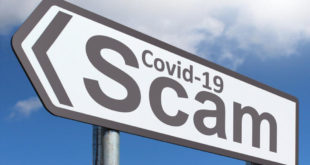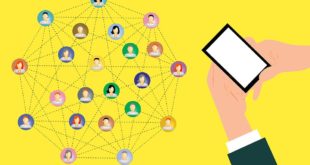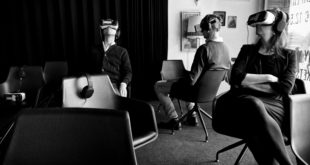Issue 30, summer/fall 2020 https://doi.org/10.70090/SSDE20SM Scroll down for the Arabic abstract. Abstract Natural disasters are one of the most dangerous challenges facing societies because of the heavy human, economic, and social losses they cause, besides the damages in infrastructure and holdings. While it is difficult to prevent some risks or …
Read More »Peer Reviewed Scholarship
Factors Influencing Public Attitudes toward Paid Online Newspaper Subscriptions- A Field Study (Arabic)
Issue 30, summer/fall 2020 https://doi.org/10.70090/EBD20FIP Scroll down for the Arabic abstract. Abstract Despite the implementation of new business models in several Western media organizations, most Arab newspapers have not yet explored these models, and little is known about public attitudes towards their willingness to pay for online news. The study …
Read More »Digital and Traditional Media’s Handling of Freedom Issues: A Comparative Study among Egyptian and Saudi Youth (Arabic)
Issue 30, summer/fall 2020 https://doi.org/10.70090/SEMA20SYA Scroll down for the Arabic abstract. Abstract With the expansion of the digital public sphere, tackling freedom issues has been widely transferred from traditional mass media to digital platforms. Based on the constructive approach that demonstrates the recipient’s active ability to give meaning to what …
Read More »Knowledge, understanding, and adherence to Social Media regulations by youth in the United Arab Emirates
Issue 30, summer/fall 2020 https://doi.org/10.70090/TS20KUAS Abstract The study deals with legislation and guidelines related to the use of virtual space, especially social media. A special focus has been placed on youth in the United Arab Emirates, where a set of regulations are being implemented, in addition to a series of …
Read More »COVID-19 Pandemic and Diffusion of Fake News through Social Media in the Arab World
Issue 30, summer/fall 2020 https://doi.org/10.70090/HK20C19P Abstract Social media platforms are among the most widely used sources of information in the world. During the COVID-19 Pandemic, the public needs access to timely and reliable information about the disease symptoms and their prevention. Thus, this study aims to determine the respondents’ perception …
Read More »Virtual Brand Communities: Engagement Profiles and Typology
Issue 30, summer/fall 2020 https://doi.org/10.70090/AT20VBCE Abstract Within the prevalent digital communication era, users have utilized digital connectivity to form social aggregations and virtual communities (VC) with unique features. Recently, millions of internet users have joined one or more brand virtual communities to serve their communication, knowledge-seeking, entertainment, and self-fulfillment needs. …
Read More »The Effect of using Artificial Intelligence Technologies in Presenting News Stories in Virtual Reality Immersive Experiences (Arabic)
Issue 30, summer/fall 2020 https://doi.org/10.70090/MA20EUAI Scroll down for the Arabic abstract. Abstract This study aims at uncovering the effect of using artificial intelligence (AI) techniques on two levels of virtual reality (360° video and immersive 3D) while presenting news stories in recipients’ immersive experiences. To achieve this goal, a field …
Read More »Gender and Issues of Digital Identity among Arab Women: An Ethnographic Study of a Sample of Facebook Users in Algeria (Arabic)
Issue 30, summer/fall 2020 https://doi.org/10.70090/MTHH20FUA الجندر ومشكلات الهوية الرقمية للمرأة العربية: دراسة إثنوغرافية على عينة من مستخدمات شبكة الفيسبوك بالجزائر تستهدف الدراسة التعرف على تمثلات الهوية الرقمية للمرأة الجزائرية، وإلى أي مدى توجد تحديات تواجه المرأة أثناء تقديمها لهويتها الرقمية عبر شبكة الفيسبوك، وما حدود العلاقة بين الهوية الرقمية والالتزام …
Read More »Digitalism, Capitalism, and Contemporary Transformations in Academic Work: An Evaluative Study of Risks and Opportunities (Arabic)
Issue 30, summer/fall 2020 https://doi.org/10.70090/ASFS29DC Scroll down for the Arabic abstract. Modern universities have always been an embedded part of capitalism in political, economic, and cultural terms. Situated in this economic and political context, this study's overall task was to analyze and evaluate the critical literature reviews that have …
Read More »Contemporary Arab and International Trends in Electronic Public Relations Studies (Arabic)
Issue 30, summer/fall 2020 https://doi.org/10.70090/HNES29CA Scroll down for English abstract. The study sought to provide a visualization of the development of Arab and international public relations research via the internet to determine the extent to which Arab research aligns with the global context, and find out whether social networks have …
Read More » Arab Media & Society The Arab Media Hub
Arab Media & Society The Arab Media Hub









